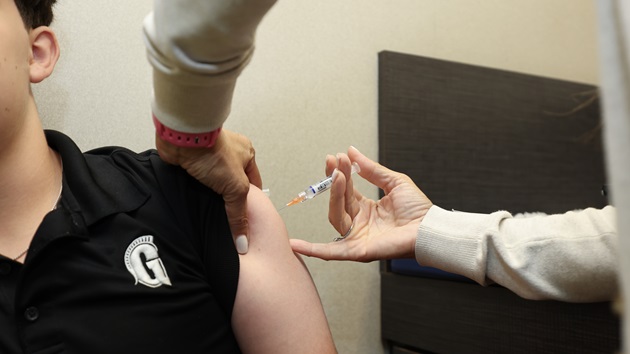Overall rates of stroke decreasing, but racial inequity worsens for Black Americans, new study finds
Written by ABC Audio All Rights Reserved on January 10, 2024

(NEW YORK) — Although rates of strokes in the adult population have generally decreased over the last several decades, the racial inequity gap persists, according to a new study in Neurology, which found that Black adults are still more likely to have strokes compared to white adults, and at younger ages.
Researchers analyzed data on patients with their first stroke in Ohio and Kentucky from 1993 to 2015, and found that overall, the rates of strokes have decreased. However, Black adults became more likely to have their first stroke at a younger age than white adults – the average age for a Black adult decreased from 66 to 62 years of age, and for white adults only decreased from 72 to 71. Black adults remained 52 to 83% more likely to have first-time strokes than white adults for all time points of the study, especially for younger adults aged 20 to 44.
“Black adults had higher rates of stroke in all of the study periods, and unfortunately the difference in the higher rates in Black versus white adults did not improve over time,” said Dr. Tracy Madsen, associate professor of emergency medicine at Brown University.
Strokes are leading causes of long-term disability and death, and from 2018-2019 cost the U.S. health care system nearly $56.5 billion, according to the CDC.
Inequities in stroke diagnosis, management, and long-term functional and cognitive outcomes have been well documented for Black Americans. The study showed that medical conditions that increase risk for stroke, such as diabetes and high blood pressure, became more common in both Black and white groups, but disproportionately for Black individuals.
Structural racism creates access barriers to treatment, financial and transportation barriers, and lived experiences of personal racism, all of which contribute to toxic stress, inflammation and conditions like high blood pressure, according to Dr. Olajide Williams, professor of neurology at Columbia University. “These are searing, tragic, preventable inequities, really driven by structural racism,” said Williams. “It’s like an endless ocean of problems, disproportionally with Black and brown people”.
Experts do not feel like biologic differences drive this inequity, especially given that race is a social construct and cannot be genetically or biologically defined. While structural determinants of health may result in altered epigenetics, reversible expressions in DNA that are caused by one’s environment, ultimately it is still the upstream social factors that are the root cause. “Black people don’t have genes that predispose them to getting more strokes,” said Williams. “That is a myth.”
The study was not able to examine systemic racism or barriers in access to care. The study also did not look at other minoritized groups such as Latine, Asian, Native Hawaiian, and American Indian individuals.
While Madsen feels that future research on these inequities is important to raise awareness, the next step is to take action. “We have enough evidence to show that these inequities exist without a doubt,” she said. “The next step is to look towards the interventions that could help address or eliminate these disparities.”
Angela Y. Zhang, MD (she/hers), is a pediatric resident at University of Washington/Seattle Children’s Hospital and a member of the ABC News Medical Unit.
Copyright © 2024, ABC Audio. All rights reserved.
 KVSP
KVSP 





